Cannabis oil has potential to kill brain cancer cells, Dr Matt Dun finds
On a mission to conquer the cancer that killed his four-year-old girl Josie, Dr Matt Dun is using the cells from her brain tumour for research. The medical researcher has found a modified cannabis oil has the potential to kill both leukaemia and the brain cancer which took his little girl’s life.
NSW
Don't miss out on the headlines from NSW. Followed categories will be added to My News.
- COVID-19 sufferer goes home after 81 days in ICU
- Man begs doctors: ‘Amputate my hand or I’ll do it myself’
Doctor Matt Dun’s daughter Josie died seven months ago but he keeps a piece of her alive in his laboratory — cells from her brain tumour so he can discover a cure.
The adorable four-year-old had diffuse intrinsic pontine glioma, the most deadly of all brain cancers.
The cancer scientist from Newcastle University and the Hunter Medical Research Institute grows Josie’s “jump 4 cells” with one mission in mind — revenge, even though they are the only thing physically left of his beloved daughter.
“I have a piece of her with me all the time, I have something living in my lab that is her,” Dr Dun told The Sunday Telegraph.
“DIPG is still her, she lived with DIPG half her life, but my mission is to kill it. That’s why I get up at 5am every morning.”
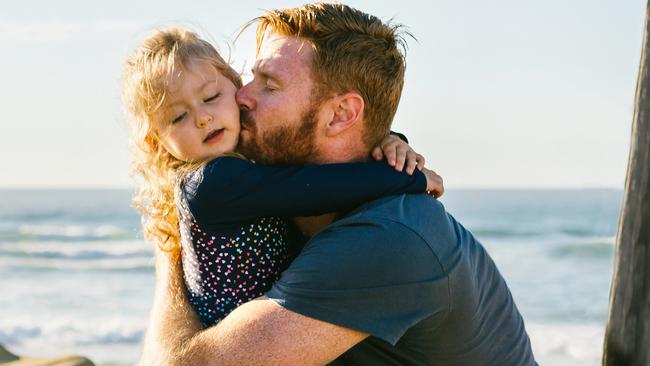
And he has hope that a form of modified cannabis oil may hold one part of the cure.
After three years of research, the lab has found potential for medicinal cannabis to kill cancer cells, including leukaemia and DIPG cells, without harming normal cells.
MORE FROM JANE HANSEN:
Shark attack deaths in Australia at 10-year high
Genius autistic teen hired without saying a word
The modified cannabis oil is from a plant dubbed Eve, created by biotech company Australian Natural Therapeutics Group, which has less than 1 per cent tetrahydrocannabinol (THC) — the psychoactive component commonly associated with marijuana — but high levels of the compound cannabidiol (CBD).
“We started with leukaemia cells that grow in the lab quite well and they died treating them with this extract,,” Dr Dun said.
“The cells did die, so we got some normal human white blood cells and treated them with the same concentrations and it didn’t kill them at all, so we got a bit excited.”
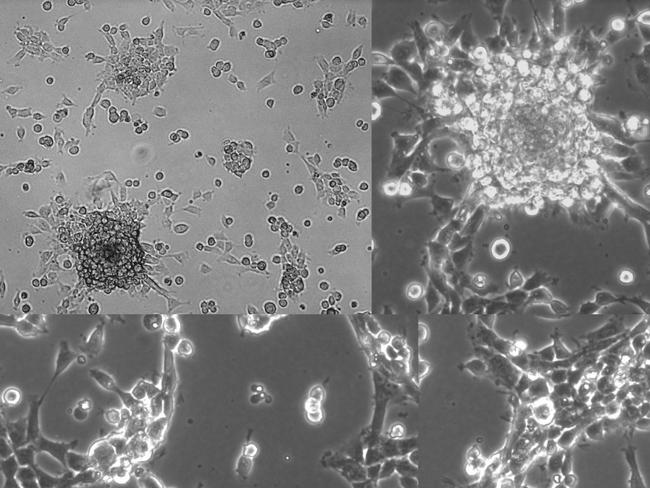
They found that for both leukaemia and paediatric brain stem glioma, the CBD-enriched variety was more effective at killing cancer cells than standard THC varieties.
“When Josie was diagnosed we started testing it in DIPG cells and the same thing was true, the DIPG cells were twice as sensitive to CBD compared to TCH and we are now working hard to find out how it happens,” Dr Dun said.
“I don’t think it is a magic bullet but it gives us a nice platform to base treatment around. We know it gets across the central nervous system into the brain, obviously, otherwise you would not get the hallucinogens from some of the compounds.
“So once we know the mechanism of action, we can target other pathways and it acts as something we can base combination therapies around.”
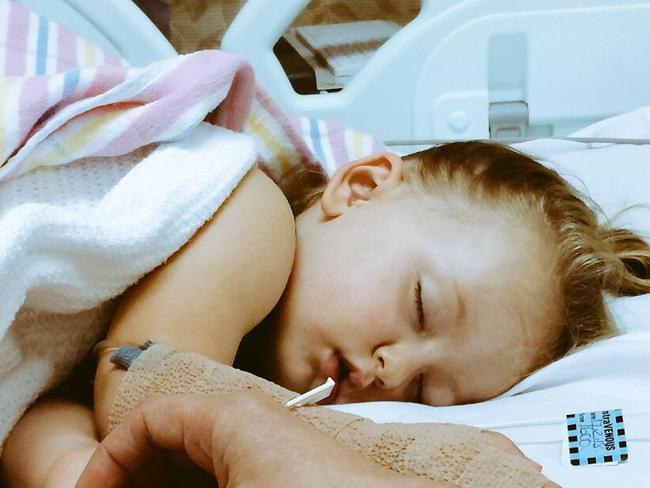
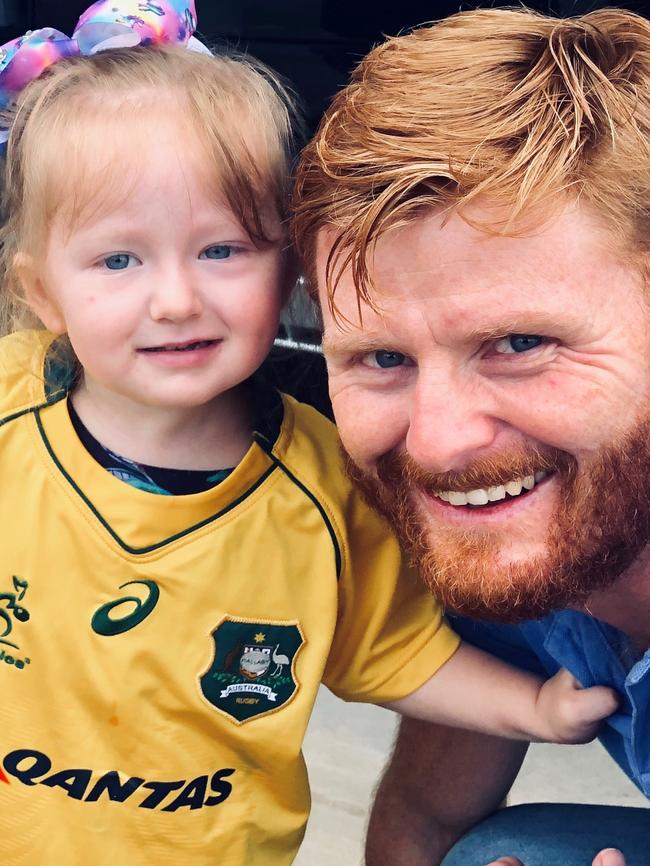
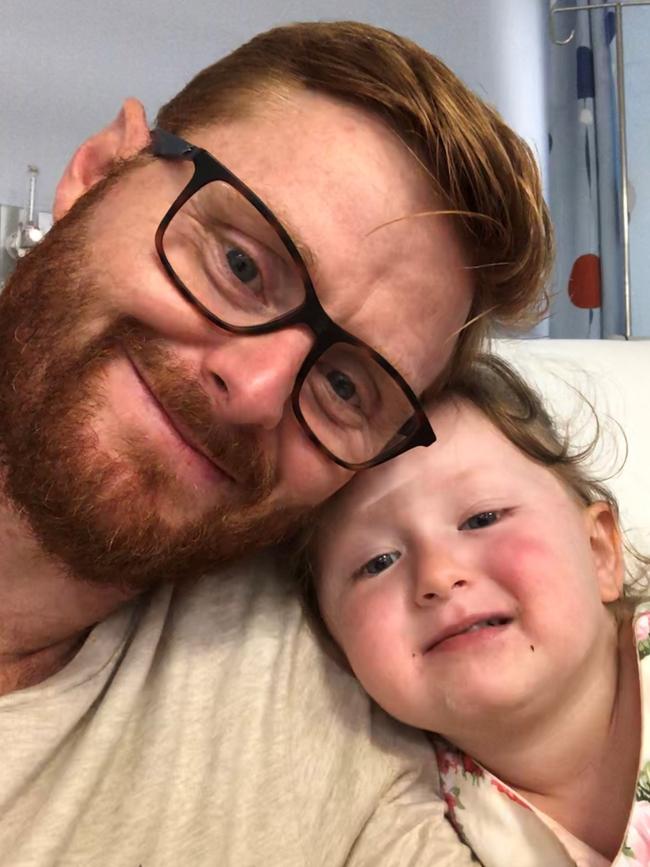
Dr Dun and the team’s investigation into the health benefits, side-effects and possible anti-cancer benefits of both CBD and THC was recently published in the journal Cancers.
“There are trials around the world testing cannabis formulations containing THC as a cancer treatment but if you’re on that therapy your quality of life is impacted,” Dr Dun said.
The next phase for the study will investigate why cancer cells are sensitive and normal cells not.
“We need to understand the mechanism so we can find ways to add other drugs that amplify the effect and week by week we’re getting more clues,” Dr Dun said.
“It’s really exciting and important if we want to move this into a therapeutic.”
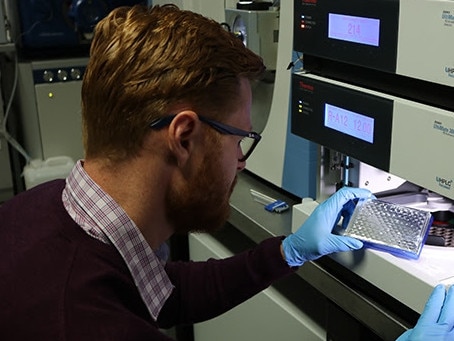
CBD-enriched cannabis isn’t yet ready for clinical use as an anti-cancer agent but many cancer sufferers like Olivia Newton John have been using cannabis oil.
Medicinal cannabis is available in Australia to treat pain and epilepsy but red tape still forces many cancer sufferers to access it on the black market.
“Hopefully our work will help to lessen the stigma behind prescribing cannabis, particularly varieties that have minimal side effects, especially if used in combination with current standard-of-care therapies and radiotherapy,” he said.
“Until then, though, people should continue to seek advice from their usual medical practitioner.”
Originally published as Cannabis oil has potential to kill brain cancer cells, Dr Matt Dun finds
